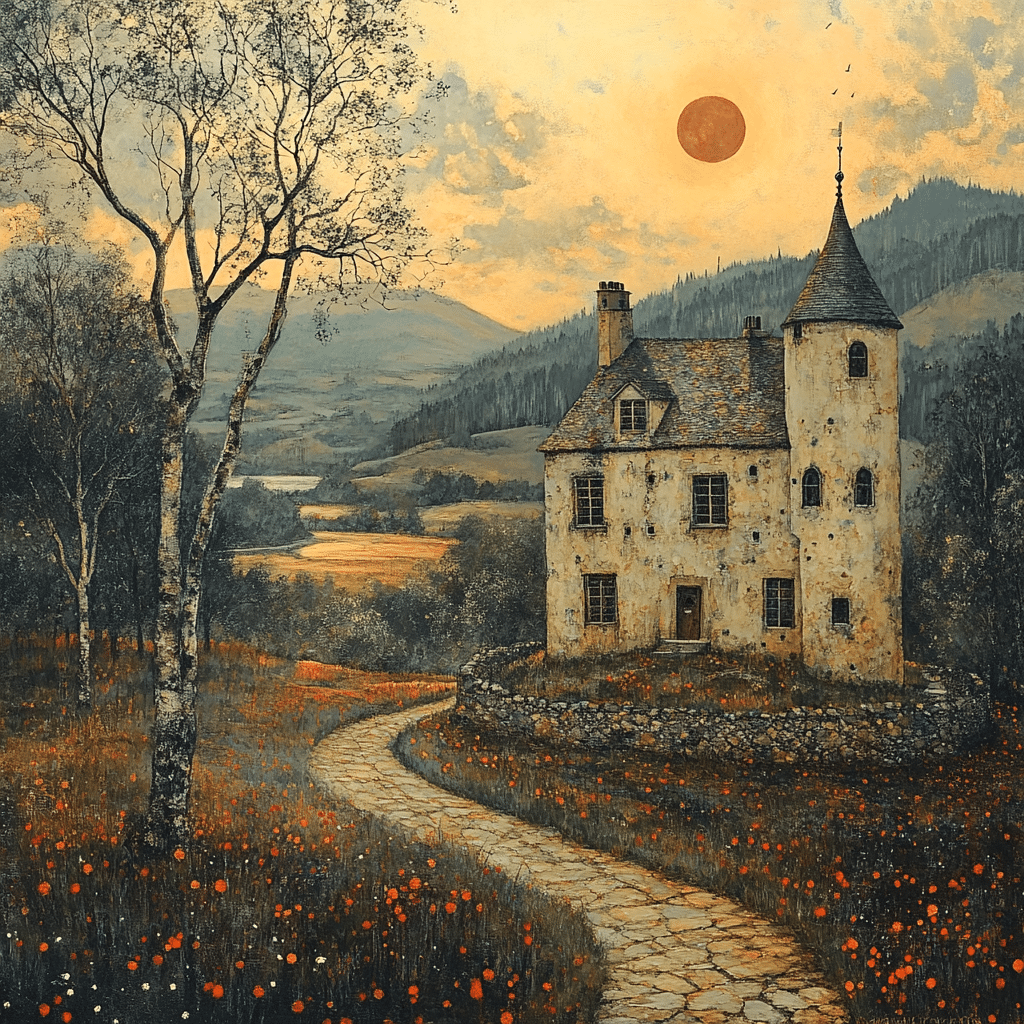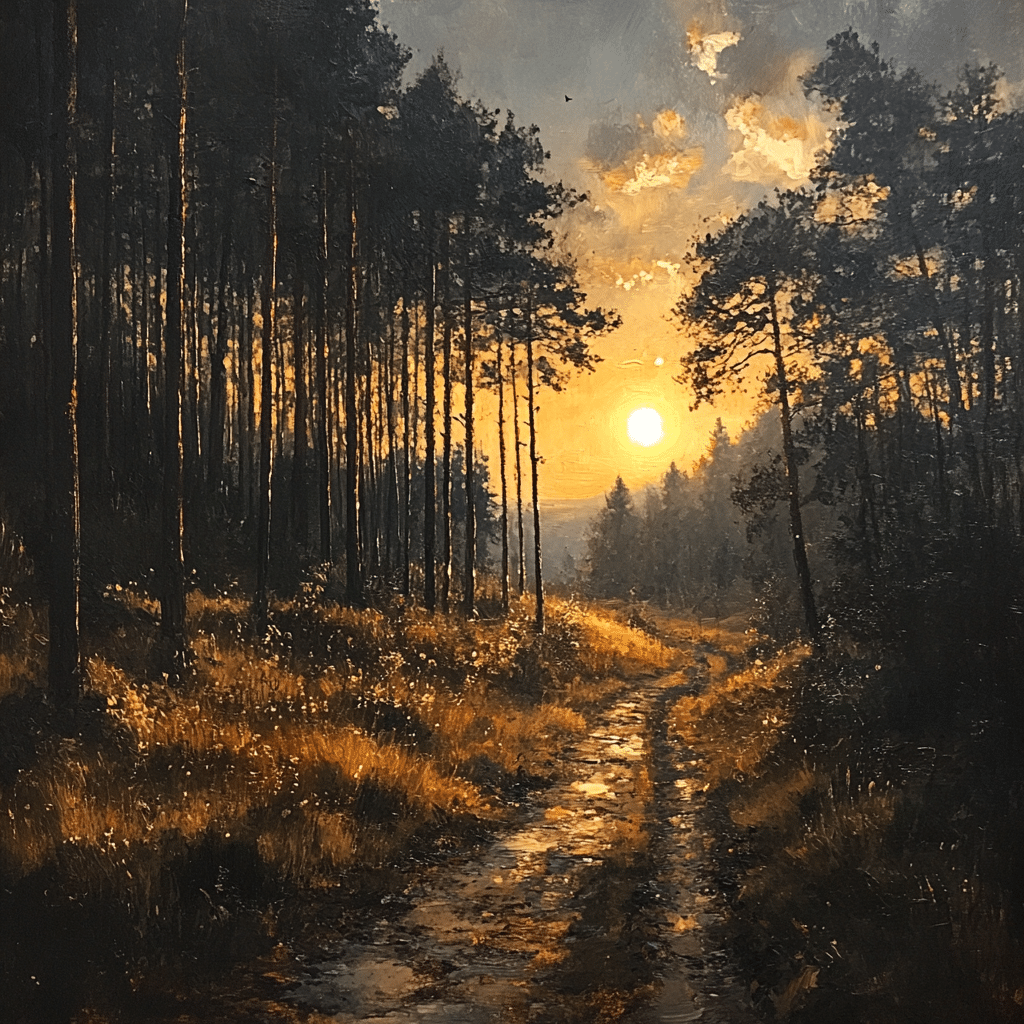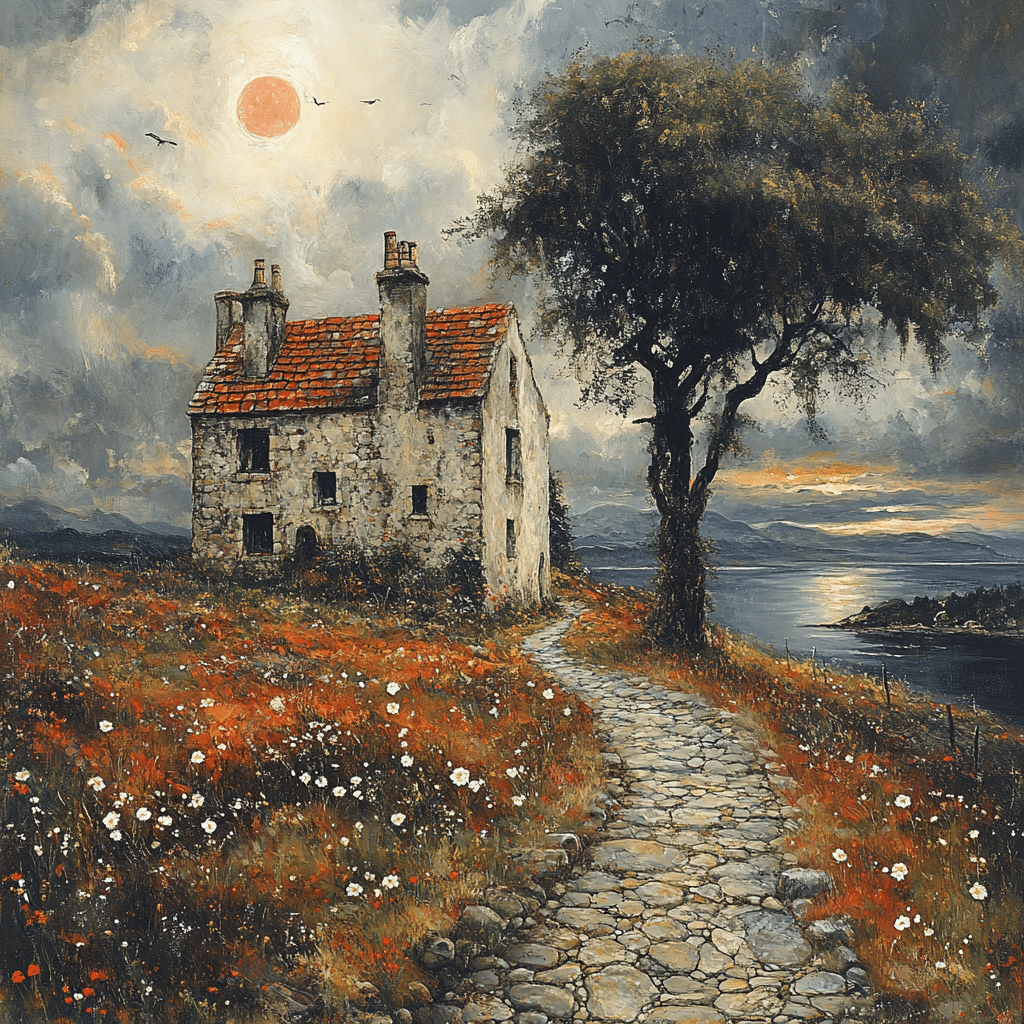Ah, Edzell—where history, architectural elegance, and garden artistry intertwine just so. Nestled among the lush, rolling hills of Angus, Scotland, Edzell Castle serves as a proud emblem of the country’s enchanting past. This remarkable structure, standing since the 16th century, is more than just mortar and stone; it symbolizes the grandeur of Scottish Renaissance ideals. Today, it’s the extraordinary garden of Edzell that turns heads and captures imaginations, inviting both admirers of history and avid gardeners to wander its graceful paths.
Edzell Castle: A Journey into Scotland’s Historical Heart
Walking through Edzell, you’re stepping onto a tapestry woven with tales of the Lindsay family, who acquired the estate in 1358. Known for their genius as much as their turmoil, this noble family laid roots with a classic motte and bailey setup near the medieval church. Fast forward to the 1500s, Sir David Lindsay, the 9th Earl of Crawford—which sounds awfully prestigious, doesn’t it?—commissioned a brand-spanking-new castle right on the banks of the shimmering West Water. Unlike the fortresses dotting the landscape geared for battle, Edzell was crafted as a residence. It’s not just any residence, though. The castle showcases their status as faffy and fabulous people, mirroring Renaissance splendor with its intricate designs and eye-catching details.
Yet, as sands of time sifted through the hourglass, the estate changed hands from the Lindsays to the Earl of Dalhousie in 1715. Fast forward to the 1930s, it found itself under state care, now a cherished historical site overseen by Historic Environment Scotland. At present, masonry inspections and repairs mean it’s temporarily closed, but rest assured, Edzell’s doors will soon swing wide open to history buffs and garden enthusiasts alike.

The Legacy of Edzell Castle: A Historical Overview
Edzell Castle stands as a gem of Scottish Renaissance architecture. Commissioned by Sir David Lindsay, there’s a charming unassuming-ness about how the place dismissively brushes aside notions of defensiveness typical to fortresses of its time. Visitors entering the grounds were less likely to meet battlements than exquisite tapestries and opulent halls—truly a testament to the Lindsay’s flair for sophistication rather than war-readiness. The West Water offers a picturesque backdrop, but surprisingly, it’s the garden that holds the real pearls.
A beguiling blend of symmetry and classical mythology, the Renaissance garden at Edzell was meticulously laid out in 1604, beckoning explorers of every kind. Visitors soon realize that it’s not merely flower beds they’re gazing upon, but a masterful narrative entrenched in the ideals of the period. Edzell’s parterre, tightly knit with knot-like designs bursting into vibrant hues, serves as a focal point that cannot be ignored. It teeters on the edge of brilliance, laying a blanket of nature’s finest embroidery at one’s feet.
| Aspect | Information |
|---|---|
| Location | Edzell, Angus, Scotland |
| Famous Landmark | Edzell Castle |
| Historical Significance | Home to the Lindsay family, acquired in 1358 |
| Architectural Style | Originally motte and bailey (medieval); redesigned in the 1500s |
| Current Ownership | Under state care; managed by Historic Environment Scotland |
| Public Access | Generally open all year; entrance charge applies |
| Current Status (2024) | Closed for masonry inspections and repairs as of February 1, 2024 |
| Notable Features | Renaissance-styled walled garden |
| Meeting Point for Walking Tour | Car park at the North end of Edzell Main Street |
| Walking Route Length | 10.5 km |
| Estimated Walking Time | Approximately 3 hours |
| Historic Transition | Sold by the Lindsay family in 1715, later owned by the Earl of Dalhousie |
| Conservation Efforts | Transferred to state care in the 1930s |
| Visitor Information | Normally open year-round apart from current closure for maintenance |
Exploring the Enchanting Renaissance Garden of Edzell
The Unique Design of the Garden
The garden at Edzell, with its precise attention to symmetry and mythic gestures, pays homage to Renaissance ideals. The design is akin to laying your eyes on an intricate puzzle; each flowerbed and path serves a purpose. Visitors roam among immaculate geometric patterns, where nature and design waltz in a harmonious ballet. At the heart of it all sits the parterre: A flourish of knotwork, a cascade of colors, a canvas of fragrant wonder. It whispers stories past and present, demanding nothing more than your awe.
The Walled Garden: Symbolism and Significance
Now, step into the walled garden, a true highlight. This isn’t just a pretty space for flowers; it’s a storied venue narrated through sculptures. The sculpted figures—standing as emblems of geometry, arithmetic, and music—offer more than just a peek at the Lindsay’s scholarly predilections. Regions of the wall don virtues like justice and fortitude. Here unfolds a narrative in stone and greenery, a living testament to Renaissance ideals of knowledge and morality. The garden stands as a canvas, showcasing the symbiotic dance between nurture and intellect.
Conservation Efforts: Preserving Edzell’s Legacy
In safeguarding Edzell’s legacy, conservation efforts come into play. Historic Environment Scotland leads projects to maintain not just the structural vestiges of the garden, but its horticultural heritage as well. Traditional cultivation practices hearken back to storied techniques, preserving original plant species that once thrived centuries ago. These conservation ventures don’t just preserve beauty for our eyes; they breathe life into a historical narrative, letting us partake in a tableau of the 17th-century garden-fidelity. Visitors—whether their gazes wander among flowery lanes or sculpture-riddled walls—step into an authentic tapestry of history.

Edzell Today: A Haven for Visitors and Historians Alike
Even today, Edzell Castle’s allure pulls at the hearts of tourists and historians. Sure, the castle’s detailed architecture grabs a fair share of attention, but the garden—the garden is where enchantment plants its roots deep. Strolling along manicured paths, with each step you entwine yourself a little more in the romance wafting from Edzell’s Renaissance aura. The charm here is captivating, the story palpable. Edzell becomes a living museum; its educational programs invite participation and exploration in Scottish cultural arts and horticulture. Offering workshops and educational jaunts amidst its historical frames, Edzell remains an eternal source of learning and inspiration.
Weaving the Past with the Present
As we linger on Edzell’s present-day stories, we acknowledge its seamless weave with history. A symbol of architectural elegance and garden smarts, Edzell signals a splendid reminder: Renaissance influence in Scotland remains robustly engraved. Ongoing preservation activities don’t just promise a future for Edzell’s gardens—they preserve a brilliantly embroidered narrative suitable for generations yet to pulse along its flowered corridors. Current aspirations see Edzell tone its legacy into tomorrow, reinforcing its exquisite portrayal of Scottish history while opening doors for future exploration. Indeed, Edzell stands as an ever-evolving monument, singing praises to the past and whispering secrets to the generations yet unborn.
Edzell’s Enchanting Garden: Trivia and Tidbits
A Melange of Heartening Tales
Step into Edzell Castle’s garden, an enigma that whispers stories from another era, where the Renaissance style takes centre stage. With hedges seen as iconic as those at Earl Shilton, the garden once was a testament to the architectural prowess of its creators. Interestingly, these grounds have witnessed more enthralling stories than one might imagine. For instance, alongside the regal motifs, the garden hosts an intricate zodiacal representation – a nod to the celestial designs that are as intriguing as an episode of I Was The Final boss, adding a hint of mysticism to its scholarly guise.
Splendor Against Adversity
Now, here’s something that might surprise you. Edzell’s grand design was initially intended to outshine the splendour found in other grand estates, like those at Earls Barton. Despite the allure it flaunted, the Castle’s fortunes have seen better days, and at one point, even faced threats of despair. Yet, it stood resilient, echoing stories of resilience similar to top youth Speakers, marking its place firmly in history. Alongside its survival saga, the garden’s design quite literally shunned away the mundane – think of captivating designs that might have amazed guests akin to the elegance captured in Imágenes de Bolitas en Los Labios Mayores.
An Effort of Fusion
Edzell’s garden, while being a soothing palette for visitors, was indeed a fusion effort. Unlike typical gardens, it encompassed teachings and symbolism in its vibrant hues and floral symphony. Not unlike the charm seen in East Horsley, this horticultural masterpiece weaves tales through its thoughtful plant choices and structured forms. In addition To its compelling architecture, it also had finely carved plaques that spoke volumes, echoing a beauty similar to the allure of Gina Carano hot in the modern world. If you ever find yourself wandering through its historic expanse, remember you’re gazing upon a mosaic of history, art, and a gardener’s poetic touch.
With each corner turned, Edzell’s garden delights with layers of history, much like unraveling a gripping mystery novel. It’s a place where the past and present converge in a soulful dance that’s brimming with intriguing tales, inviting every beholder to take in its enchanting beauty.

How long is the Edzell Blue Door walk?
The Edzell Blue Door walk is a 10.5km circuit that’ll probably take you about three hours to complete.
Who lived in Edzell Castle?
Edzell Castle was home to the Lindsays, a noble family known for their turbulent and gifted history. They had the estate since 1358 and later built the castle we see today in the 1500s.
Who owns Lindsay Clan Castle in Scotland?
The Lindsay Clan Castle, known as Edzell Castle, is currently under the care of Historic Environment Scotland but it’s unclear who specifically owns Lindsay Clan castles as ownership can vary.
Why is Edzell Castle closed?
Edzell Castle is closed for masonry inspections and repairs as of February 2024, but is typically a popular visit for its Renaissance-styled walled garden.
What would you do with an Edzell Blue?
An “Edzell Blue” isn’t a commonly recognized term outside the context of possibly referring to something related to Edzell, so it’s hard to say specifically what someone might do with it.
How long is the coffin walk?
The coffin walk isn’t widely known by a specific length in this context, so more details would be needed for a precise distance.
Who owns Edzell house?
Edzell House is owned by Dundee City Council after its transfer from private ownership.
When did Edzell Base close?
Edzell Base closed up shop in 1997, marking the end of its operations after playing host to various military activities for the UK and US.
Where is the Lindsay clan from in Scotland?
The Lindsay clan hails from the Lowlands of Scotland, with some of their historic lands in Angus and the surrounding areas.
What castle did Queen Elizabeth buy in Scotland?
Queen Elizabeth II purchased Balmoral Castle in Scotland, which served as a summer residence for many years.
What is the largest privately owned castle in Scotland?
Drumlanrig Castle is considered one of the largest privately owned castles in Scotland, belonging to the Duke of Buccleuch and Queensberry.
What is the Lindsay clan motto?
The motto of the Lindsay clan is “Endure Fort,” reflecting their resilience and strength through the ages.
Why are so many Scottish castles closed?
Many Scottish castles are closed for preservation efforts and repairs to protect these historical structures from further deterioration due to natural wear and safety concerns.
Are there abandoned castles in Scotland?
Yes, there are several abandoned castles in Scotland that can be found scattered across the countryside, often in picturesque states of ruin.
Who owns Edzell Woods?
Edzell Woods ownership isn’t commonly detailed, so there isn’t widely available information on its current management or proprietorship.



